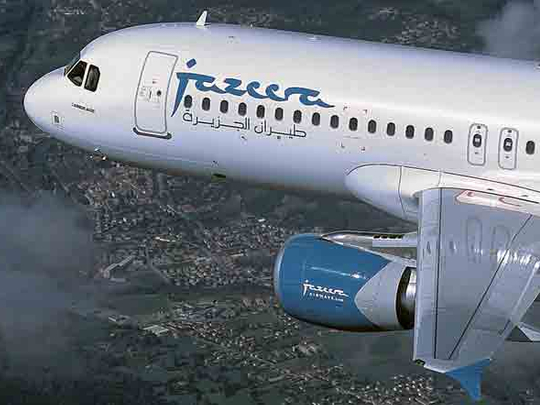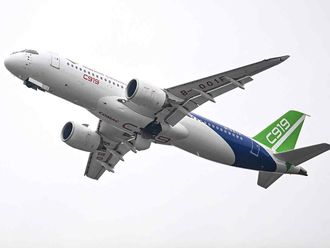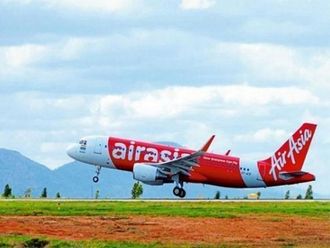
Dubai: Low-fare airlines continue to find the Middle East an environment conducive to growth, if the latest numbers coming out of the sector are any indication.
Jazeera Airways Group on monday announced a third-quarter net profit of 4.4 million dinars (Dh57.61 million), making the quarter its best since the airline was set up in 2005.
Air Arabia chief executive Adel Ali told reporters his airline will expand its fleet to 70 aircraft over the next three years as it invests $3.6 billion to acquire 44 more.
Jazeera chief executive Marwan Boodai attributed the airline's profitability to "the right fleet size on profitable routes". The airline, which adopted a turnaround plan in May, accessed global leasing markets and placed four Airbus A320s on long-term lease with Virgin America.
Jazeera has been capturing market share on all the routes it operates, with the exception of its destinations to Saudi Arabia, where it is restricted to a lower seat capacity compared other airlines.
The Kuwait-based carrier posted a nearly six-fold jump in third-quarter net profit. It competes with Sharjah-based Air Arabia and Dubai-based flydubai.
Air Arabia, the Middle East's biggest budget airline, said its third-quarter earnings will exceed analyst estimates.
"We're doing well and growing our business," Chief Executive Officer Adel Ali told reporters in Dubai, adding that figures for the three months ended September 30 were "good" and that he's "very happy" with the seat factor, a measure of occupancy.
Air Arabia's second-quarter profit fell 44 per cent, more than analysts had predicted, as the carrier was hurt by rising fuel costs and lower ticket prices.
Air Arabia has orders for 44 Airbus A320 aircraft valued at $3.6 billion, Ali said, 43 of which have yet to be delivered. The carrier raised $160 million to fund the purchase of four aircraft with European export credit agency backing and will receive one new plane this year and six in 2011, he said.
Air Arabia aims to open a fourth hub, in Jordan, next year, Ali said. Outside the UAE it also has bases in Morocco and Egypt.
"Air Arabia is definitely one of the strongest players in the GCC and as such will have little problem securing finance," Saj Ahmad, an analyst with FBE Aerospace, told Gulf News.
"It is the oldest, biggest and most recognized low-cost carrier [LCC] in the region and with Airbus looking to increase A320 rates, using European export credit agencies means money to buy will always be on tap. Air Arabia has a very good credit rating and there's nothing to suggest that that will change.
Strategy
"The primary reason why Air Arabia is electing a hub-based strategy is because it knows that it will soon be overtaken in size and passenger traffic by neighbouring flydubai and also because it needs to lessen its dependence on its Sharjah hub — which for all intents and purposes will never leverage the same passenger numbers as will Dubai," Ahmad said.
"Therefore their expansion strategy outside of Sharjah is a prudent move but this success hinges largely on whether other hubs and regional governments are receptive to a foreign airline on their territory. This could change for example, if Jordan elects to starts its own LCC — where would that leave Air Arabia's planning?" Profitability can be a result of several factors for a low-fare airline, but Ahmad sees access to passenger numbers as one of the primary determinants.
Travel habits changing
A survey has revealed that low-cost carriers (LCCs) have changed the travel habits of UAE residents.
Of the 750 respondents interviewed by YouGov Siraj, 69 per cent said they travel more frequently due to the availability of LCCs in the region, 63 per cent have used LCCs for leisure travel in the past two years and 60 per cent of the non-LCC travelers are interested in traveling on low-cost carriers in the future.
The survey also reveals that the main factors that determine UAE residents' travel plans are low fares, convenience (flight timings, airport location) and destination of choice.
"Yes, you could say that the combination of low fares and routes serviced by the likes of flydubai have drawn in consumer appeal. But by far the biggest attraction has been the growth in frequencies between city pairs," Saj Ahmad, an analyst with FBE Aerospace, told Gulf News.
"The explosion of LCCs in the region means that there is more choice about when customers can fly and that is the biggest selling point."












